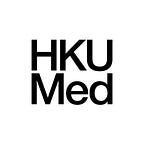HKUMed Explores Potential of AI in Teaching and Learning
A HKUMed neurologist has developed a series of lectures guiding students and teachers in how to use artificial intelligence tools as he works to enhance the Faculty’s innovations in medical teaching.
Dr Gary Lau is the Medical Faculty’s Director in EdTech and SIME (Students in Medical Education). His role consolidates HKUMed’s recent initiatives bringing the latest technologies into medical training.
HKUMed is embracing technology to equip students with the tools they need for modern healthcare settings.
This year, the Faculty opened the Technology-Enriched Learning Mezzanine (Techmezz) offering virtual reality and augmented reality tools for anatomy education. Techmezz follows the introduction of point-of-care ultrasounds for final year Bachelor of Medicine and Bachelor of Surgery (MBBS) students alongside enhancements in e-learning and e-assessment.
Dr Lau has worked with students and fellow teachers to develop five AI lectures. The lectures, which are designed for students and teachers cover topics ranging from using AI for clinical and basic research to the ethical and professional implications of using AI in healthcare.
“Not only should we know of the advantages of these tools, we should, at the same time, really understand how one learns, and how we can blend these technologies into our different stages of learning,” he said.
He invited a pair of second-year MBBS students with a strong interest in leveraging artificial intelligence for learning to produce a video lecture on how generative AI can help students learn and study.
Calvin Cheung and Jason Chan’s informative lecture guides peers to use prompts effectively to make the most of large language models, the technology behind generative AI tools like ChatGPT.
The 20-minute explainer outlines how to use AI tools to summarise lectures and how students can “teach” an AI to test their understanding of topics.
Their interest in the technology was inspired by a desire to streamline their own learning.
While researching the best study methods, Cheung approached students the years above him who recommended creating flashcards. However, he found creating the cards was time-intensive, so he turned to AI for help, resulting in unexpected benefits.
“It became evident that integrating AI tools wasn’t a mere convenience; it was a symbiotic relationship where both the AI and I grew in tandem, pushing the boundaries of traditional study methods and stepping into a new realm of efficient and effective learning,” he said.
Chan said that the heavy workload as a medical student led him to search for ways to work smarter and increase productivity. In this search, he turned to large language models and AI to help him “automate rote tasks and accelerate my learning”.
“Experimenting with prompt engineering has shown me how, with some guidance, these models can rapidly produce helpful summaries, generate Anki flashcards, explain complex concepts simply and more,” he said.
Dr Lau first experimented with educational technologies in 2013 when he developed materials for e-learning platforms on clinical neurosciences and clinical medicine.
“The aim was…to be able to, through providing a large range of multimedia-rich materials through an e-learning platform to enrich our students’ experience, and to maximise the learning experiences during the medical school encounter,” he said.
This taster encouraged Dr Lau to work with colleagues and students to explore how technology can be blended with traditional methods to enhance teaching and learning.
The technologies now in use at HKUMed not only offer more engaging and interactive learning environments, but also allow students to learn on their own schedules.
“Some of our learning platforms allow our students to access these materials anytime and anywhere, and really allow for flexible and self-paced learning,” he said.
As he embraces new technologies, Dr Lau views a combination of traditional teaching methods, such as hands-on learning alongside tools such as VR as the most effective means to train future physicians.
And he maintains that many skills can only be imparted by human role models. Teachers will remain vital for bedside teaching, such as guiding students to take patient histories, conduct physical examinations and develop diagnostic skills, he explained.
“Teachers will evolve to become facilitators, curators of content, and of course, mentors who guide students whilst they’re navigating the vast amount of information available through technology,” he said.
“Only [human teachers] can nurture compassion in our young generation of doctors… nothing can replace the lasting influence of a good doctor on the next generation.”
